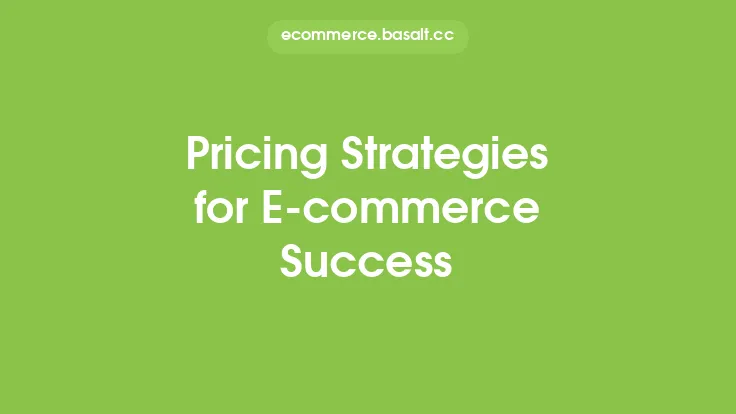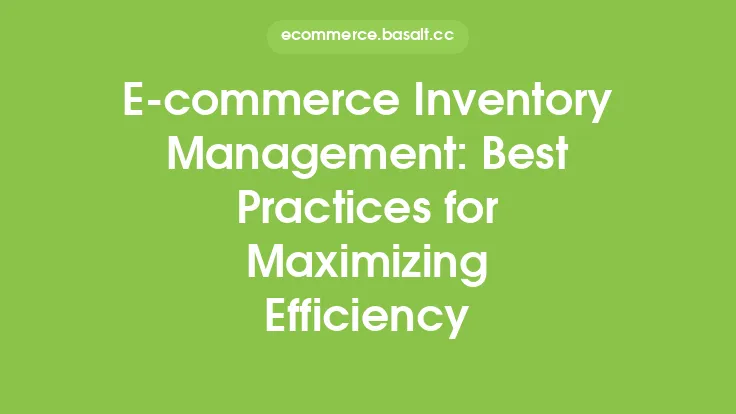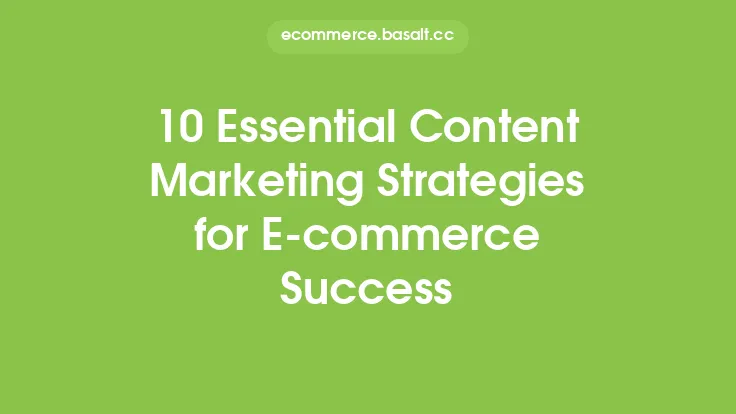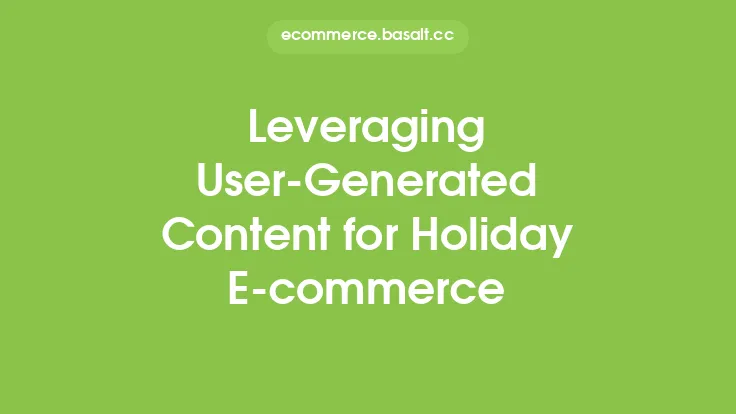As the holiday season approaches, e-commerce businesses are presented with a unique opportunity to boost sales and increase revenue. The holidays are a critical period for online retailers, with many consumers turning to the internet to find the perfect gifts for their loved ones. To maximize holiday sales, e-commerce businesses must develop and implement effective strategies that cater to the changing needs and behaviors of their target audience.
Understanding Holiday Shoppers
Holiday shoppers are a distinct demographic, driven by a desire to find the perfect gifts, take advantage of discounts and promotions, and enjoy a seamless shopping experience. To succeed during the holiday season, e-commerce businesses must understand the motivations, preferences, and pain points of their target audience. This includes identifying the most popular products, analyzing consumer behavior, and developing targeted marketing campaigns that resonate with holiday shoppers. By gaining a deeper understanding of their target audience, e-commerce businesses can create personalized experiences that drive engagement, conversion, and customer loyalty.
Creating a Holiday Marketing Strategy
A well-planned holiday marketing strategy is essential for e-commerce success during the holiday season. This includes developing a comprehensive plan that outlines marketing objectives, target audience, messaging, and tactics. E-commerce businesses should focus on creating a cohesive brand experience that spans multiple channels, including social media, email, search, and online advertising. By leveraging data and analytics, e-commerce businesses can optimize their marketing campaigns, improve ROI, and drive more sales during the holiday season. Additionally, e-commerce businesses should consider partnering with influencers, offering exclusive promotions, and creating engaging content to drive brand awareness and customer engagement.
Optimizing Product Offerings and Pricing
The holiday season is a critical period for e-commerce businesses to optimize their product offerings and pricing strategies. This includes analyzing consumer demand, identifying top-selling products, and adjusting pricing to remain competitive. E-commerce businesses should also consider offering bundled products, free shipping, and gift wrapping services to enhance the shopping experience and increase average order value. By optimizing product offerings and pricing, e-commerce businesses can improve profitability, drive more sales, and increase customer satisfaction during the holiday season.
Enhancing the Online Shopping Experience
The online shopping experience is a critical factor in driving holiday sales and customer loyalty. E-commerce businesses should focus on creating a seamless, intuitive, and engaging experience that meets the evolving needs of holiday shoppers. This includes optimizing website design, improving page load times, and ensuring a secure and reliable checkout process. Additionally, e-commerce businesses should consider offering personalized recommendations, product reviews, and customer support to enhance the shopping experience and build trust with their target audience. By prioritizing the online shopping experience, e-commerce businesses can drive more sales, increase customer satisfaction, and improve brand loyalty during the holiday season.
Leveraging Social Media and Influencer Marketing
Social media and influencer marketing are powerful channels for e-commerce businesses to reach and engage with holiday shoppers. By leveraging social media platforms, e-commerce businesses can create targeted advertising campaigns, promote exclusive offers, and drive brand awareness. Influencer marketing is also a highly effective strategy for e-commerce businesses, allowing them to partner with social media influencers who have a large following and are relevant to their target audience. By leveraging social media and influencer marketing, e-commerce businesses can drive more sales, increase brand awareness, and improve customer engagement during the holiday season.
Measuring and Optimizing Holiday Sales Performance
Finally, e-commerce businesses must measure and optimize their holiday sales performance to ensure maximum ROI and customer satisfaction. This includes tracking key performance indicators (KPIs) such as sales, conversion rates, and customer satisfaction, and using data and analytics to identify areas for improvement. By monitoring and optimizing holiday sales performance, e-commerce businesses can make data-driven decisions, improve marketing campaigns, and drive more sales during the holiday season. Additionally, e-commerce businesses should consider conducting post-holiday analysis to identify trends, opportunities, and challenges, and develop strategies to improve future holiday sales performance.





